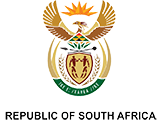Summary of Operation Vulindlela
What is Operation Vulindlela?
Operation Vulindlela is a joint initiative of the Presidency and National Treasury to accelerate the implementation of structural reforms and support economic recovery. It is overseen by Deputy Minister David Masondo, and reports directly to President Cyril Ramaphosa.
What does Operation Vulindlela aim to achieve?
Operation Vulindlela aims to modernise and transform network industries, including electricity, water, transport and digital communications. These network industries are the bedrock of economic growth, and are essential to creating a globally competitive economy. In addition, reforms to the visa regime are being prioritised to attract skills and promote growth in tourism.
A total of 19 priority reforms have been identified in these focus areas, which together represent a bold and ambitious reform agenda to fundamentally change South Africa’s economic trajectory. Operation Vulindlela is not a new plan, but aims to ensure effective implementation of plans that already exist.
How does Operation Vulindlela work?
Operation Vulindlela is a government-wide approach through which Ministers, departments and entities implement structural reforms and a Vulindlela Unit in the Presidency and National Treasury monitors progress and actively supports implementation. The Vulindlela Unit is designed to address obstacles or delays to ensure execution on policy commitments. Operation Vulindlela reports directly to the President as well as to the Ministry of Finance, and provides updates to Cabinet and the National Economic Recovery Council on a regular basis. Operation Vulindlela supports the implementation of reforms in three ways:
- Monitoring and reporting on progress to identify challenges, sustain momentum and ensure accountability
- Facilitating technical support to enable the implementation of reforms
- Providing recommendations to the President and Cabinet where a decision or agreement is required
Why are structural reforms important?
As their name suggests, “structural reforms” are intended to change the structure of the economy to reduce input costs, lower barriers to entry and increase competition. Lower costs and greater efficiency increase the competitiveness of the economy and create new opportunities for investment. These reforms will place South Africa on a new trajectory of high and sustained growth.

